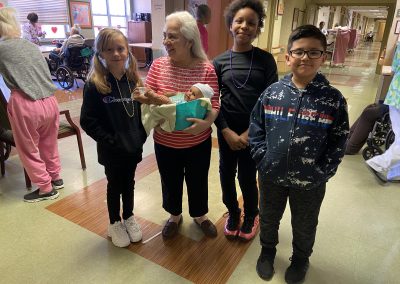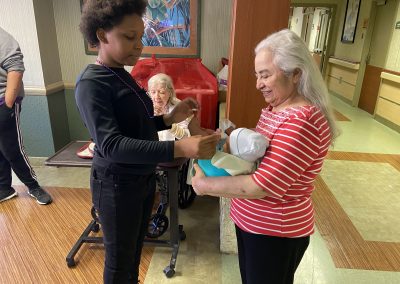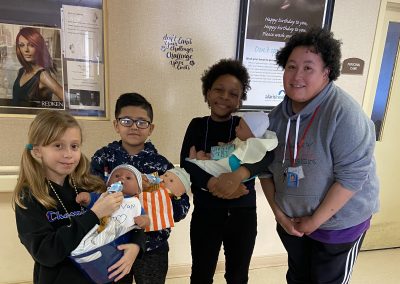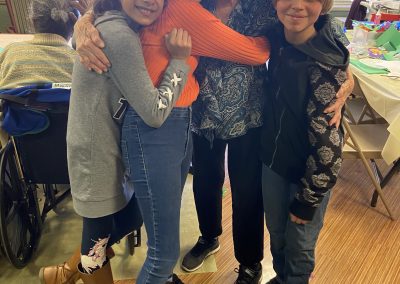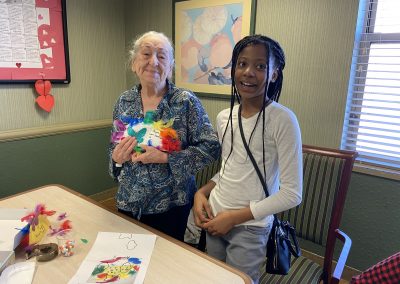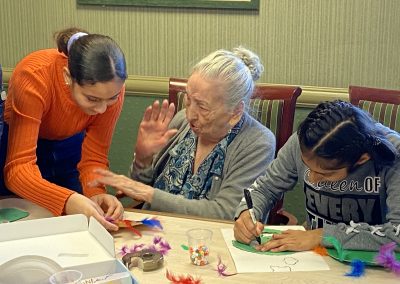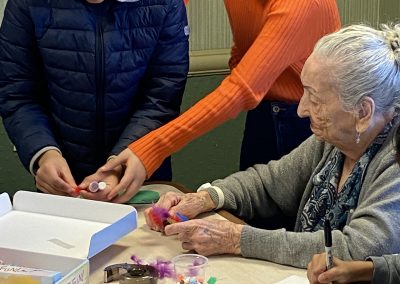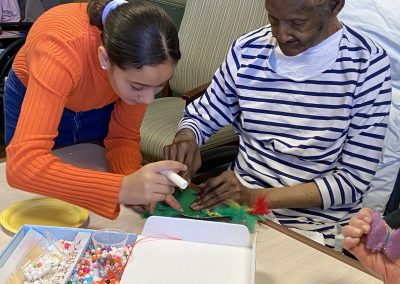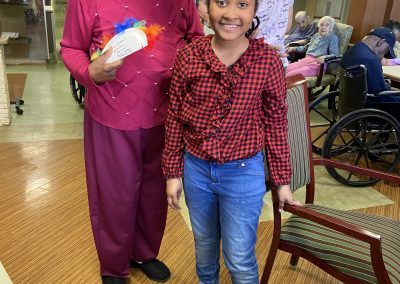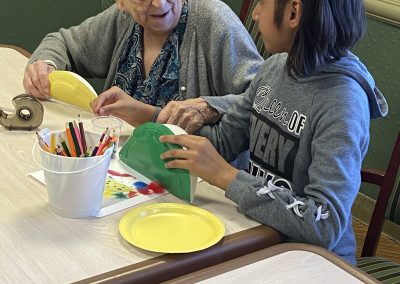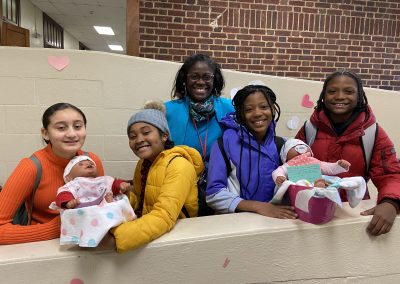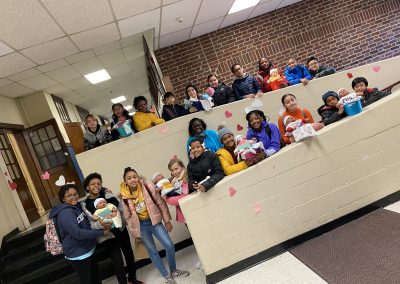
by Marcia Davis-Dawkins | Nov 12, 2020 | Education, Kids, Parents, Teachers, Teens
Please, Call Me by My Name….

By Dr. Marcia
Being called my correct name has always been an issue for me. It started years ago when I migrated to the United States and my new journey began. Little did I know that it also meant having a “new name”! Well, the pattern began when a couple months after my move to a new country and a new type of climate, I had to go to the doctor’s office to check my on my health as everything seemed to be rebelling because of the new temperature that I had to live in and the hay that was close to where I resided. As I sat in the waiting room, I was reading a book to pass the time but could hear one of the nurses come out and yelled, “Marsha Dawkins”! This happened several times but of course it didn’t hit me that she was calling me until I got a sharp jab in my side. “That’s you, you know. She is calling you!” I got up hesitantly, to move towards the nurse. I was still puzzled. Later as time went by, I realized that most people in the United States pronounced, “Marcia” as “Marsha” and I was constantly reminded that “I was Marsha, Marsha, from the Brady Bunch!” I grew tired of hearing it and I was always explaining that my name was not “Marsha” but “Marcia” as in “Garcia”. There were many who attempted to correct but more who simply shrugged their shoulders and said, “well, that’s what I know and it’s okay!” No, it’s not okay, that is not my name and I should be called by my name.
I think of the many times, I enter my classroom and I have new students and as I look at the roster, I try to pronounce the names phonetically, but then realize that it’s not the best way to go about it. So I tried a new approach. I have been asking the students to introduce themselves and as they do I write how they said it phonetically so I can say it the same way as they do. If I plundered, I would ask for their help because I didn’t want to “mess up” their given names. How many of us take the time to do so? How many of us realize that when you miss pronounce a person’s name that you are dehumanizing them? I might even go further to say that you are being dismissive and being ignorant. I often put myself in the students’ position, how would I feel if they were messing up my name? Well, I have been there and it has been done to me several times and still being done to me and I must say that I really dislike it and as a result I don’t want to do it to any person, let alone a student. I think it is a way of getting to know your student and also learn something new about names and the students.
We must recognize that our names are our identity and if we say the names wrong, we are stripping the person aside, damaging their self-worth and self-confidence. Whatever effort it takes to learn the person’s name, we should, and learning the name sends the message that we really care about the person especially our students. Some of us might not even think it is important since it has never happened to you. If it happens that you mess up the student’s name and the student tell you then you, should make every effort to correct. Or if you say it, make sure to tell the student to correct you since some might be shy, too scared or too polite to tell the teacher. This I, again, sending a message to them the students that they are important, and they matter in your classroom.
 A few weeks ago, I asked 35 college students how they felt about their names being pronounced as given and it was interesting to see the response. These future teachers were telling how they really feel valued when teachers, including professors, pronounced their names properly and it would be a priority of theirs to make students feel valued if they pronounce their names as given. The future teachers were adamant about this matter since some of them had been through the same kind of problems and wanted to implement the same kind rule in their classroom so the students will feel respected and valued. I even referred them to the book, Your Name is a Song, written by Jamilah Thompkins-Bigelow. In this book highlights a student who was frustrated because her teacher didn’t pronounce her name correctly. She didn’t want to go to school because of that. Many of us might even think it as trivial, but we must be mindful of our students and how we can make an impact on them and encourage them to feel valuable. It was Dalai Lama who once said, “When educating the minds of our youth, we must not forget to educate their hearts.” What a great way of reaching students’ hearts, by calling them by their given name, the correct way of pronouncing them.
A few weeks ago, I asked 35 college students how they felt about their names being pronounced as given and it was interesting to see the response. These future teachers were telling how they really feel valued when teachers, including professors, pronounced their names properly and it would be a priority of theirs to make students feel valued if they pronounce their names as given. The future teachers were adamant about this matter since some of them had been through the same kind of problems and wanted to implement the same kind rule in their classroom so the students will feel respected and valued. I even referred them to the book, Your Name is a Song, written by Jamilah Thompkins-Bigelow. In this book highlights a student who was frustrated because her teacher didn’t pronounce her name correctly. She didn’t want to go to school because of that. Many of us might even think it as trivial, but we must be mindful of our students and how we can make an impact on them and encourage them to feel valuable. It was Dalai Lama who once said, “When educating the minds of our youth, we must not forget to educate their hearts.” What a great way of reaching students’ hearts, by calling them by their given name, the correct way of pronouncing them.
The link below highlights yet another story where the vice president nominee’s name was mispronounced and she was mocked because of her name. It further proves that time and time again, persons are disrespected because of their names. Why is it so difficult to take the time to get to know the correct pronunciation of someone’s name? Are they not important or is that we just think others are insignificant?
https://www.theroot.com/david-perdues-mocking-of-kamala-harris-name-is-turning-1845406435?rev=1603035814272&utm_campaign=The+Root&utm_content=1603036196&utm_medium=SocialMarketing&utm_source=facebook&fbclid=IwAR12UuF_98zGN6Ss1zSkKCDqPtvi1vgMeYb_M2npRWaVnMOmxPl8qzOxA1A
The Power of Words
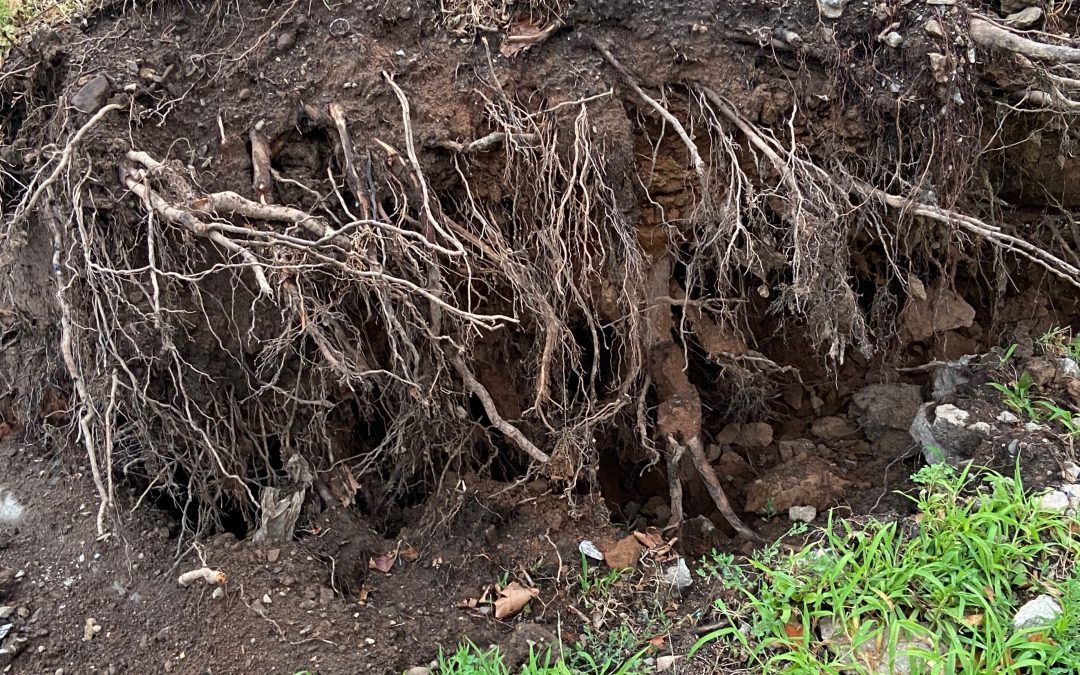
by Marcia Davis-Dawkins | Sep 22, 2020 | Education, Kids, Parents, Teachers
Stay Rooted

By Dr. Marcia
Recently I experienced the remanence of a hurricane and technically a storm. Being from a Caribbean country, Jamaica, I have been through many storms. Storms that were devastating, storms that left the country and the area I was in a state of seemingly disrepair. As I experienced the storms, I thought about the thunder, the lightning, the persistently heavy downpour, the trees being battered, the zincs flying in the air, people’s roofs going everywhere, various objects that are not hunkered down going here and there and even tides and waves rising. I also personalized the storms and how figuratively storms affect my life. Storms of life are everywhere and affect people in different ways, and mine are no exception. Important reminder is that no storm lasts forever and just like in a real hurricane, storms move from side to side but there are definitely here to make us stronger. I somehow think of those days when I see storms and the devastation just seem overwhelming and things just don’t seem to be able to come back together, but with time and efforts from people, things start to be rebuilt and come back together and I even look in awe and wonder how things seems as if nothing happened.
One thing I am certain of is that storms are never friendly, no matter the size or category. They can beat me up and they have made me feel as if I am going under, but then I have to dig deep and stay rooted.
Speaking of staying rooted, as I walked in the park the morning after the recent storm I experienced, it was obvious that some of the trees were uprooted and I thought about how these big, seemingly strong trees were uprooted. Not just the limbs and branches, but most were UPROOTED!! Again, I thought of life for me, the storms of life can uproot me if I am not planted firmly in what I believe and most of all in whom I believe. Will my faith be uprooted by a storm that come my way? Will I be morally sound or rooted? Will the storm knock me off my feet? Will I be prepared?
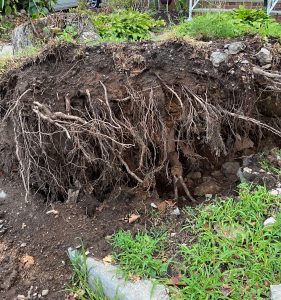 How can I make sure I am prepared for a storm? Well, I do know that part of the preparation for a storm is making sure there is enough food supply, the house is in order – which means making sure that the roofs and buildings are ready to withstand the winds and rain. Preparation means that outdoor furniture is hunkered down so they can’t “fly” away. It also means making sure there is enough water stored just in case the water has to be turned off. There could also be loss of electrical supply, so I have to prepare by getting candles, lanterns, flashlights, lamps, or generators ready, in the event there is a loss of electrical power. Most of all, the weather authorities sometimes warn against going outside during the storm, during the eye of a hurricane, just in case there are flying debris or objects. If I am not prepared, I could be caught off guard and left without even essential items.
How can I make sure I am prepared for a storm? Well, I do know that part of the preparation for a storm is making sure there is enough food supply, the house is in order – which means making sure that the roofs and buildings are ready to withstand the winds and rain. Preparation means that outdoor furniture is hunkered down so they can’t “fly” away. It also means making sure there is enough water stored just in case the water has to be turned off. There could also be loss of electrical supply, so I have to prepare by getting candles, lanterns, flashlights, lamps, or generators ready, in the event there is a loss of electrical power. Most of all, the weather authorities sometimes warn against going outside during the storm, during the eye of a hurricane, just in case there are flying debris or objects. If I am not prepared, I could be caught off guard and left without even essential items.
Just like the physical storms of life, I can be caught off guard in my personal storm of life, and so I must also prepare. It should be noted that the storms will definitely come, and I can ensure that I include the following tips:
- Giving praise or simply giving thanks for the storm, no matter what the magnitude. Believe it or not the storms prepare me for future living and other storms. During the storm I can spend time praying while giving praise.
- I can’t give up, I must persevere. Giving up means I am not giving myself a chance at surviving. I must stay on the target and not expect there to be a quick solution to the problem (storm).
- I must be rooted, grounded and firmly planted. This also means staying focused and not lose hope or faith. Things will and can get better.
- I can draw strength from within or I can draw strength from friends, family or even co-workers because iron can sharpen iron. This also means that we can learn from each other because really and truly, “no man is an island” and we need each other. They can encourage me in some way or other.

After a storm, I realize that some supplies could be limited, (water, food, electrical supplies), but thank God, that he is able to supply ALL my needs no matter what. I must stay rooted in Him so He will continue to lead me to my purpose on this earth. Overall, I must embrace my storms because I wouldn’t get my strength and the storms also gets my attention. Since I am an educator, it also means that I build my life on integrity, and good moral standards so that my students and those whom I encounter will have a positive role model in me.
Peace in the Midst of the Storm
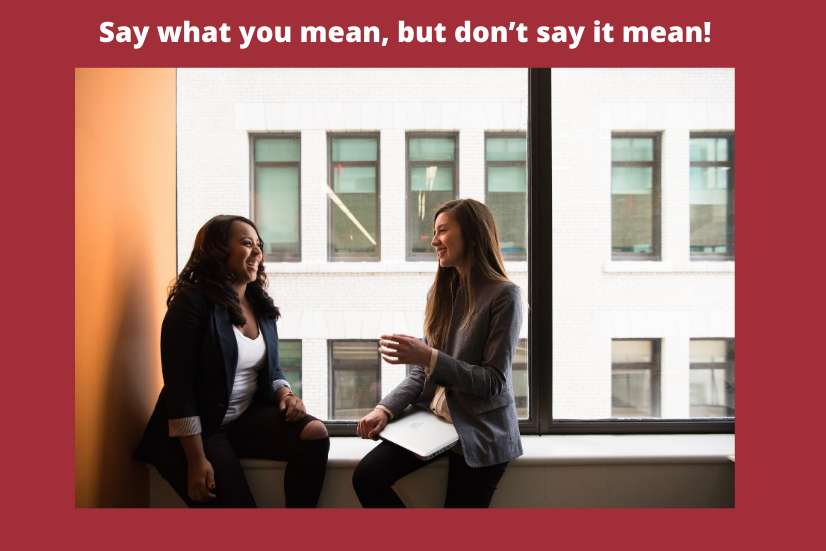
by Marcia Davis-Dawkins | Aug 11, 2020 | Kids, Parents, Teachers
Say What You Mean?
 By Dr. Marcia Davis-Dawkins
By Dr. Marcia Davis-Dawkins
I am almost certain that most of us have heard the expression, “Say what you mean, but don’t say it mean!” How many of us ever think about those words seriously? It is such an interesting statement. Interesting for so many reasons. For instance, if you were to ask a spouse or someone you consider close to you (family or friend) how your outfit looks, and the person doesn’t want to hurt your feelings and you later found out that they lied to you, does that mean that they said what they really meant? Maybe that will mean that you don’t consider that person your friend, simply because you don’t trust that person’s judgement or you don’t believe anything the person says after that. What if the person is brutally honest and tells you the truth and your feelings get hurt, is that person your friend? You already get the feeling that this is a catch 22, whichever way you look at things.
Let’s look at another scenario, where some people will simply say something to upset you just because they don’t like you, so they just want to hurt your feelings. Frankly speaking, I think you can be brutally honest, however, the way you say something can make such a big difference. There is the other side of the coin where before you speak, you can let the words pass through a few gates. Is your statement the truth? Is your statement necessary? or Is the statement kind? I suppose if everyone in the world were considerate and kind, I wouldn’t even be writing about this issue! Then again, the world might be too easy to live in, if everyone were loving and kind!
As I am writing this, I can’t help but reflect on when I decided I wanted to become an educator. Part of my reasoning was that I wanted to be kind and loving because so few of my teachers had those character traits. Most importantly, I wanted to be different and yes, change the world. Little did I know that I was in for a rude awakening because no matter how kind I was, I seemed to meet those people all around, who were just plain and simply mean. At times there seemed to be no empathy and leader/mentorship. Whatever happened to one of the golden rule, “treat others the way you wanted to be treated”? Because I know I don’t like the feeling of being treated badly, I am usually cognizant of how I treated others. For instance, I know that I don’t like to be teased, so I don’t tease people – not even if it is considered a joke. What is considered a joke to some is hurtful and harmful to others. Educators in general, and especially leaders should be able to have the attributes of empathy, caring, kindness and listening as part of the toolkits in educating our young minds and even in collaborating with fellow educators. These qualities, as researches have shown, are necessary and important skills needed for 21st century leadership. How we communicate with each other is key if we expect to see growth in our lives and our communities overall. Without a doubt it will also encourage productivity or effectiveness when we are able to express empathy, which will in turn increase inclusiveness.
I remember years ago, hearing a parent saying to their child, Tammy*, that they should not play with their friend, Becca*, because she wasn’t good friend. The parent even went on to say that Tammy would “not be ambitious if she played with Tammy.” Let’s understand that these children were both nine-years-old, and that I later learned that the parent simply thought that the Becca was in a lower economic group and should not be around Tammy. What kind of message is that sending to the children? Of course, the parent said what she meant, but it was definitely with ill intent. One thing, I do know is that love can be liberating and how can children be liberated if children not being taught how to love? It is no wonder our world is so filled with hate. We teach our children how to hate and the cycle goes on and on.
If parents were to reach out and send positive lessons to their children, they would learn how to love and accept everyone for who they are and build each other up instead of tearing them down.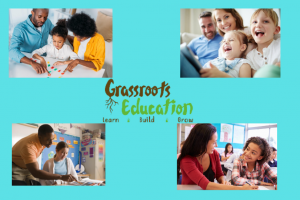
It is always my intention to mean what I say and try to choose my words carefully, so I don’t hurt others. For those who have a similar mindset, we should avoid people whose aim is to be unkind and excuse their words as a joke! Instead of being labeled as “oversensitive”, our peers and colleagues should take into consideration the power of their words. Try not to focus on people who have no regard for our thoughts and feelings and surround ourselves with people who talk less and listen more.
Parental Involvement and Students’ Success
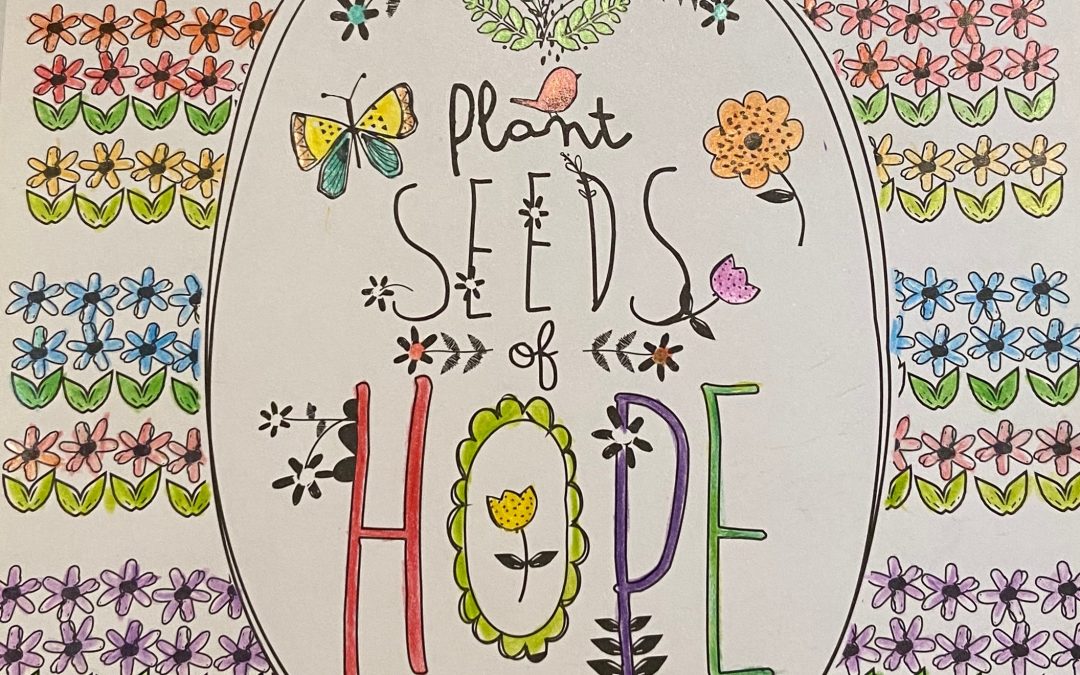
by Marcia Davis-Dawkins | May 13, 2020 | Education, Kids, Parents, Teachers, Teens
Springtime!
By Dr. Marcia Davis-Dawkins
Hello everyone,
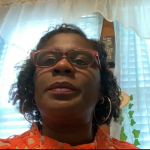
Message for you. Click to listen
I’m bringing you this blog in a different format primarily because of the topic for discussion. Since it is springtime, which brings about change and change is not a new topic to my blog as almost 2 years ago, I wrote on the topic “Change Our Positions!” Why the same topic you might ask? Well, change seems like it is ongoing and like the seasons – always changing. Hence, Springtime. What do you know about Springtime? Well, you are right when you say it brings rebirth, renewal, blossoms, growth, productivity, newness, cleansing, among other things. Not many people like the word “change’ because it means getting up and actually doing something instead of being stuck doing the same routine every day. I, for one, don’t really like change. In fact, I had to think long and hard about changing the way I am presenting this blog and when it was brought to me by a colleague, I thought it was different but seemed interesting, so here goes! 
I am sure you are tired of hearing and/or reading about COVID-19, and I can’t help but say that COVID-19 will help us to make changes whether we like to or not. This pandemic has forced us to change our perspective and look at many things differently. It has and will help us change the way we relate to each other. One thing that is already etched in my mind is that this year I had my first virtual birthday party, all because of COVID-19. I would never dream of this happening and guess what? It was a fun filled party with no expense, no frills or horse & pony show. It will indeed be memorable because it was different, and my friends were not in the same house, state or even country with me. The important thing is that I was present. Apart from being present, I had fun and so did my guests (friends). The COVID-19, Corona virus changed our norm, changed our standards and charged us to change our foundation and make sure it was solid. We were/are forced to change our direction, slow down and do some self-love. We didn’t embrace the changes, but we can embrace the way we do things and make the best of the situation.
As we make changes in our personal lives, educators are making changes in the way we teach, present lessons, and even we way think for that matter. The newness in education seems frightening for some and for others adventurous. Most of us are accustomed to changes in curriculums, to evaluations, students, schools, new school year, administrations, policies, laws and other things, so then why not a new way of teaching because of the threat of COVID-19? Well, might I say that it is because most of us are afraid of the unknown! Change sometimes seems slow but then can also come quickly and suddenly.
I believe it is important to approach the change and the new norm without blinders, learn from all the opportunities that will present themselves and stay focused, so we are not left behind. Covid-19 came without warning and suddenly, there is a new norm, we literally had to obey the order to “Get work for students, give work to students, stay home, and teach from home!” We are now forced to make a difference in the way we teach. As we are teaching from home, we are realizing that we have to be more patient in the way we give students directions as well as what work we are expecting them to give us. We have to refuel, when our tanks are empty, so I believe the call is for us to use the time to refuel so that the seeds we plant in our students will bloom when all is said and done. Teaching and learning are now online – Life as an educator after this dreaded COVID pandemic should be a reflection of “good” change in this unchanging world. We should seek to change our norm to a new way of teaching. The teaching profession is normally very nurturing, yet some of us are not nurturing, we could change the way we relate to our students, help them feel like they belong. Help them feel better about themselves, maybe they have another way of learning and we didn’t realize, well, it’s our job, to find the way they learn and be more accommodating. The idea is that when all of this is said and done, everyone, including educators should come out better than we did before. In this Springtime, and Covid-19, this pandemic is teaching us to let go of the old way of communicating with our students, parents and colleagues. Fresh perspectives! Embrace the new and shift to better! Like Zig Ziglar once highlighted “The 3 C’s of Life:
You must make the choice, to take a chance, if you want anything in life to change.”
Education and Success
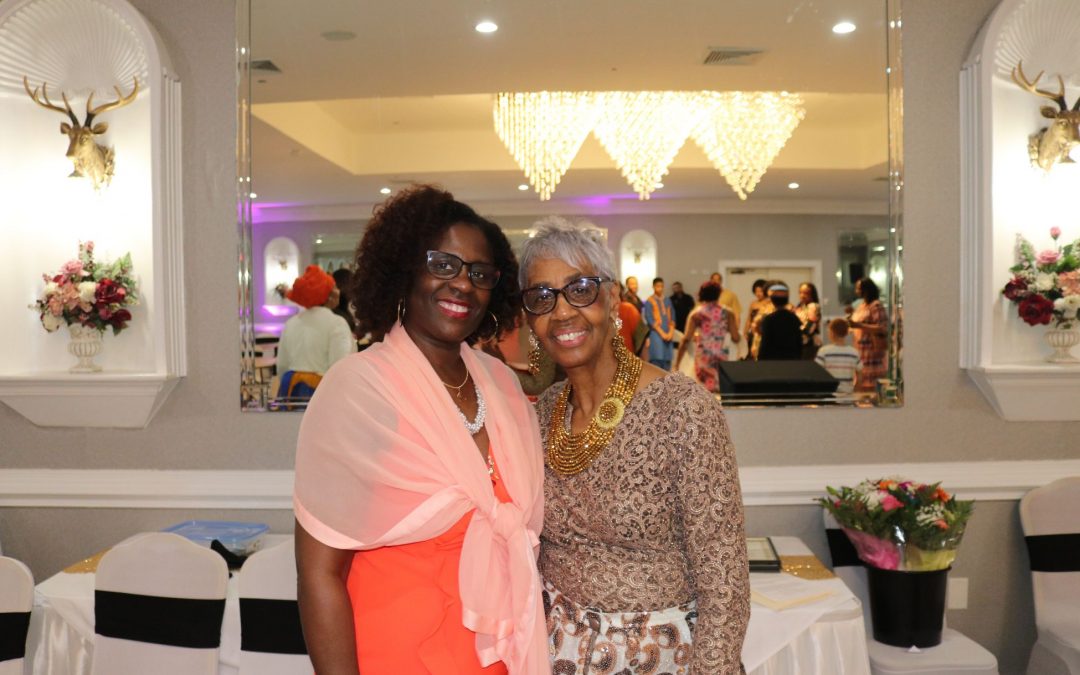
by Marcia Davis-Dawkins | Mar 24, 2020 | Education, Kids, Parents, Teachers, Teens
Generational Impact – What is Your Legacy?

By Dr. Marcia Davis-Dawkins
February was Black History Month in some countries, including the United States of America. Throughout the month, time was set aside to highlight and celebrate some notable history makers in our lives. At times, it seems as if we only celebrate certain people while omitting others. Maybe we can’t celebrate everyone, but at least highlight a new person or two, and not continue to celebrate the same every single year. Maybe we should celebrate people who make a difference in our lives daily and not simply wait for February. This could, no doubt, help students to learn to celebrate and feel good about themselves.
It really takes a village to raise a child and even though some period don’t believe that we can and should say anything to children in the 21st century, it really makes a difference when you do have certain people in the village who are still willing. A few months ago, I lost a colleague, a friend and a mother figure to me. It was sudden and unexpected. This loss hit, dare I say, “Like a ton of bricks!” I knew she was sick, but I kept praying for the best, or plainly put, for her to come through, I believed she would recover and come back to work where we would sit and exchange wise and pleasant talks about human nature and how we could help shape some of our troubled students. The weight from the bricks sent me in a downward spiral because I soon realized that she was really gone and we weren’t able to talk again. Needless to say, I miss her warmth, her wise talks, her understanding and calm sense or twist on a bad situation? Well, even when things just seemed unbearable, this friend/colleague/mom would speak wisdom into my heart and make me realize that “we must look on the bright side of life.” In fact, I can envision her sitting up in her chair, moving her neck from side to side and then saying, “Dr. D, let’s see what this means and how we can get another perspective.” It is as if changing her stance and moving her neck were the signal that she was getting more wisdom to pass on to me.
This person I cannot claim for myself, because she represented the same “idol” to so many other persons. Truth be told, she was like that to so many other people and, in particularly, to the students at the school where we worked. Students would get in trouble and be sent to the principal’s office and she would be a ray of sunshine to the students. As a matter of fact, it seems as if some students wanted to get in trouble and be sent to the office so they could get some of the “good wisdom talk.” The fact that she was able to mold and mentor them simply made my heart melt, and it didn’t matter who the student was, she saw potential, possibility, and promise in that student. Her calm spirit, her presence, her elegance, her aura, her demeanor were evident when she was around.
At school, she was honored during Black History Month, and while this effort was laudable, I would propose a somewhat different approach. She was an ardent proponent of the Amistad initiative and pressured the school board to make it a reality. If we truly want to honor her legacy and continue her work, we must TEACH WHAT SHE PREACHED. In place of a memorial that will come and go, ensure that black history is an integral part of the curriculum, all year long, not limited to a shallow exercise during February and then abandoned. Reject merely teaching about historical “ firsts,” such MLK, Rosa Parks, Jackie Robinson, etc. While every student should, of course, recognize these people, limiting lessons to this leads students to believe that Black History consists of a few heroic characters. Focus on and highlight the often-unacknowledged contributions that so called “ordinary” people of color make EVERY day. In doing so, her passion lives on, long after the plaudits and commendations of a memorial fade.
It is my aim that I am able to leave a legacy that would make this person proud and that people will remember me for my sense of peace and kindness. That somehow, I am known for the fruit that I grew based on the seeds that were planted or sowed. Did I spread good news or spread love and peace just like my former colleague? Did I spread the good news to my students or people that I meet, to imply that they were special in their own special way/s?
I, without a doubt, want to hear the words as quoted below:
“If it falls to our luck to be street-sweepers, sweep the streets like Raphael painted pictures, like Michaelangelo carved marble, like Shakespeare wrote poetry, and like Beethoven composed music. Sweep the streets so well that all the hosts of heaven and earth would have to pause and say, “Here lived a great street sweeper.” ~Dr. Martin Luther King Jr. addressing the Jamaican crowd in the National Stadium in 1965.
(Source: Dr. Rebecca Tortello, Pieces of the Past ~ The Gleaner)
I want to be the sowers of great seeds so others reap beautiful and tasty fruits.
Family is Everything
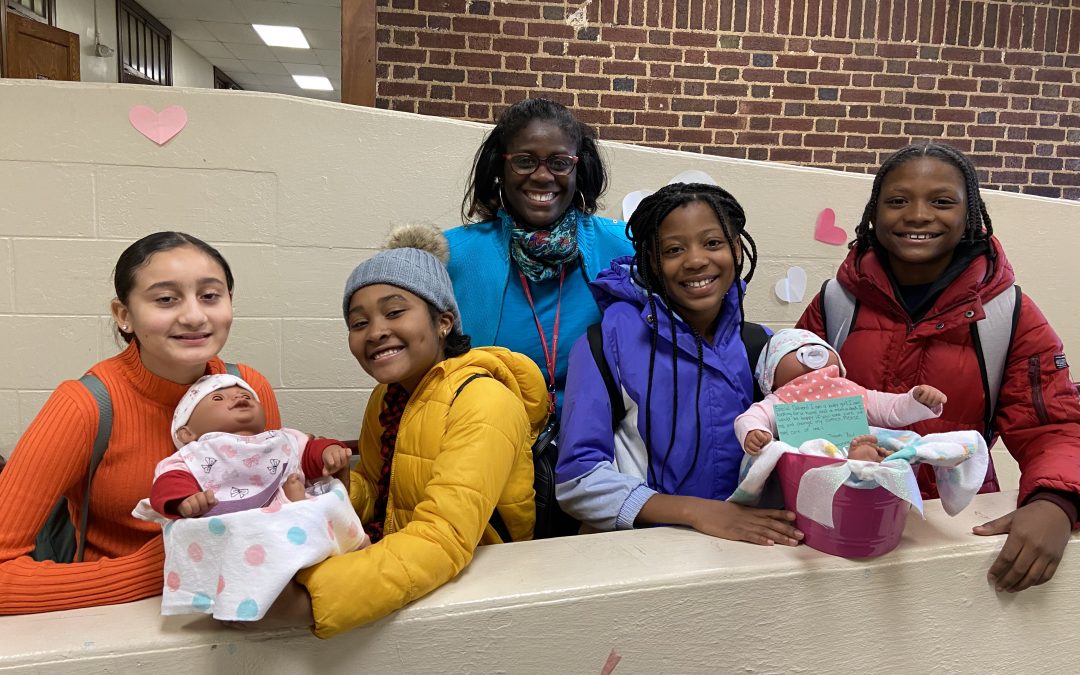
by Marcia Davis-Dawkins | Mar 4, 2020 | Education, Kids, Parents, Teachers
Love and Care; From Our Youths to Our Nursing Homes

By Dr. Marcia Davis-Dawkins
Recently the Student Council Advisors (including me) took the members of the School’s Student Council to a Nursing Home close to our school. We are teaching students that they should value all ages in our community, from the very young to the very old. But the oldest in nursing homes and assisted living facilities suffer from dementia and Alzheimer often feel isolated and excluded. Developing stronger connections between older adults and students in the community can have tremendous benefits for both residents of these facilities and students. The student council was involved in The Cuddle Care Project, which offered students the opportunity to make a difference in an older person’s life, while instilling respect for elders, sensitivity for others different than themselves or in need, and lessens self-centeredness. This was accomplished by providing patients with therapy dolls that will become an integral part of their lives.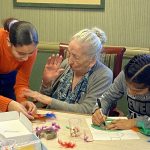
As many as 90% of seniors with dementia or Alzheimer’s struggle with some sort of distress, due to the disease. Caregivers try to ease the burden by giving patients life-like dolls to love and care for. The dolls become an integral part of a senior’s life and caring for the doll as they would care for a baby becomes a major part of their day-to-day responsibilities. Doll therapy, also known as cuddle therapy, may bring back some happy memories of early parenthood and help seniors feel useful and needed. Studies demonstrate that this therapy can be used to increase positive behaviors and decrease negative behaviors in users and is an effective approach in caring for seniors afflicted with dementia. Baby dolls can calm someone who is upset, provide endless hours of hugs and smiles, lull a person to sleep, create a distraction from an upsetting event, provide a tool for interaction, regenerate warm, nurturing feelings and make it possible for someone totally dependent on others to care for someone else.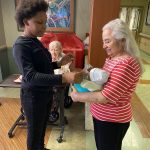
Students read The Sunsets of Miss Olivia Wiggins by Lester Laminack. This is the touching tale of a woman who resides in a nursing home and who seems to live more in the past than in the present. This book gives voice to the often silent tragedy of watching a loved one slip into the clutches of Alzheimer’s. A discussion was followed focusing on the needs we all have regardless of age: to feel useful, needed and wanted, targeting the relevance of these needs among individuals who are elderly. Students were then introduced to the project. They prepared dolls for distribution to elderly. Students dressed dolls, wrap in receiving blankets and placed in carry all. They also chose an extra outfit as a change of clothing for elderly to utilize on doll. There were eight dolls, five of which were provided by the Rahway National Council for Negro Women (NCNW), those were presented to some residents of the Nursing Home.
This project exposed students to the informational topic of Alzheimer’s, which can be dry and clinical when solely read about. The doll project, visitation, and subsequent discussion brought the subject matter to life. This project also presented an awesome opportunity for intergenerational relationships, and is a great way for students to get a different sense of perspective and context of history through communication with elderly. When students visited the Nursing Home, they were able to interact some of the patients and made crafts with them. The patients along with the students made crafts and there was definitely a positive interaction with both sets of parties. The smiles the patients’ faces spoke volumes when they received the dolls (their babies) to cuddle. Patients were particularly happy since they rarely received visitors. Students also asked patients if they could give advice to a younger them what would it be. To which one of the patients responded that he would tell them to be a leader not a follower because they could end up in jail. Another student asked, “What was your fondest childhood memory?” One patient’s response was that, “She enjoyed visiting her grandmother’s house.”
 The students learned how to interact with people other than their peer group and learned responsibility and civic duty. While their work on the doll project remained anonymous to the residents, it instilled in them the value of making a difference in someone’s life and emphasized the importance of volunteering. One of the students when asked what was his favorite part of the trip to the Nursing Home, his response was, a beautiful woman at the Home was asking him questions about what he was going to do in the future that he told her stories about her life. She had a big smile on her face. She was also very strong.”
The students learned how to interact with people other than their peer group and learned responsibility and civic duty. While their work on the doll project remained anonymous to the residents, it instilled in them the value of making a difference in someone’s life and emphasized the importance of volunteering. One of the students when asked what was his favorite part of the trip to the Nursing Home, his response was, a beautiful woman at the Home was asking him questions about what he was going to do in the future that he told her stories about her life. She had a big smile on her face. She was also very strong.”
According to one of the Activity Aide, “The residents are very happy because they were engaging – they used their tactile, visual, verbal and a whole lot of love. Patients loved the interaction and the special attention they received.” This was also therapeutic for them. It also showed students that it is good to be compassionate to everyone – both young and old.
To quote President Obama:
“We celebrate the selfless individuals around our country who channel their civic virtues through volunteerism… devoted to a cause bigger than themselves…. Volunteers help drive our country’s progress, and day in and day out, they make extraordinary sacrifices to expand promise and possibility.”
Love for Everyone


 A few weeks ago, I asked 35 college students how they felt about their names being pronounced as given and it was interesting to see the response. These future teachers were telling how they really feel valued when teachers, including professors, pronounced their names properly and it would be a priority of theirs to make students feel valued if they pronounce their names as given. The future teachers were adamant about this matter since some of them had been through the same kind of problems and wanted to implement the same kind rule in their classroom so the students will feel respected and valued. I even referred them to the book, Your Name is a Song, written by Jamilah Thompkins-Bigelow. In this book highlights a student who was frustrated because her teacher didn’t pronounce her name correctly. She didn’t want to go to school because of that. Many of us might even think it as trivial, but we must be mindful of our students and how we can make an impact on them and encourage them to feel valuable. It was Dalai Lama who once said, “When educating the minds of our youth, we must not forget to educate their hearts.” What a great way of reaching students’ hearts, by calling them by their given name, the correct way of pronouncing them.
A few weeks ago, I asked 35 college students how they felt about their names being pronounced as given and it was interesting to see the response. These future teachers were telling how they really feel valued when teachers, including professors, pronounced their names properly and it would be a priority of theirs to make students feel valued if they pronounce their names as given. The future teachers were adamant about this matter since some of them had been through the same kind of problems and wanted to implement the same kind rule in their classroom so the students will feel respected and valued. I even referred them to the book, Your Name is a Song, written by Jamilah Thompkins-Bigelow. In this book highlights a student who was frustrated because her teacher didn’t pronounce her name correctly. She didn’t want to go to school because of that. Many of us might even think it as trivial, but we must be mindful of our students and how we can make an impact on them and encourage them to feel valuable. It was Dalai Lama who once said, “When educating the minds of our youth, we must not forget to educate their hearts.” What a great way of reaching students’ hearts, by calling them by their given name, the correct way of pronouncing them.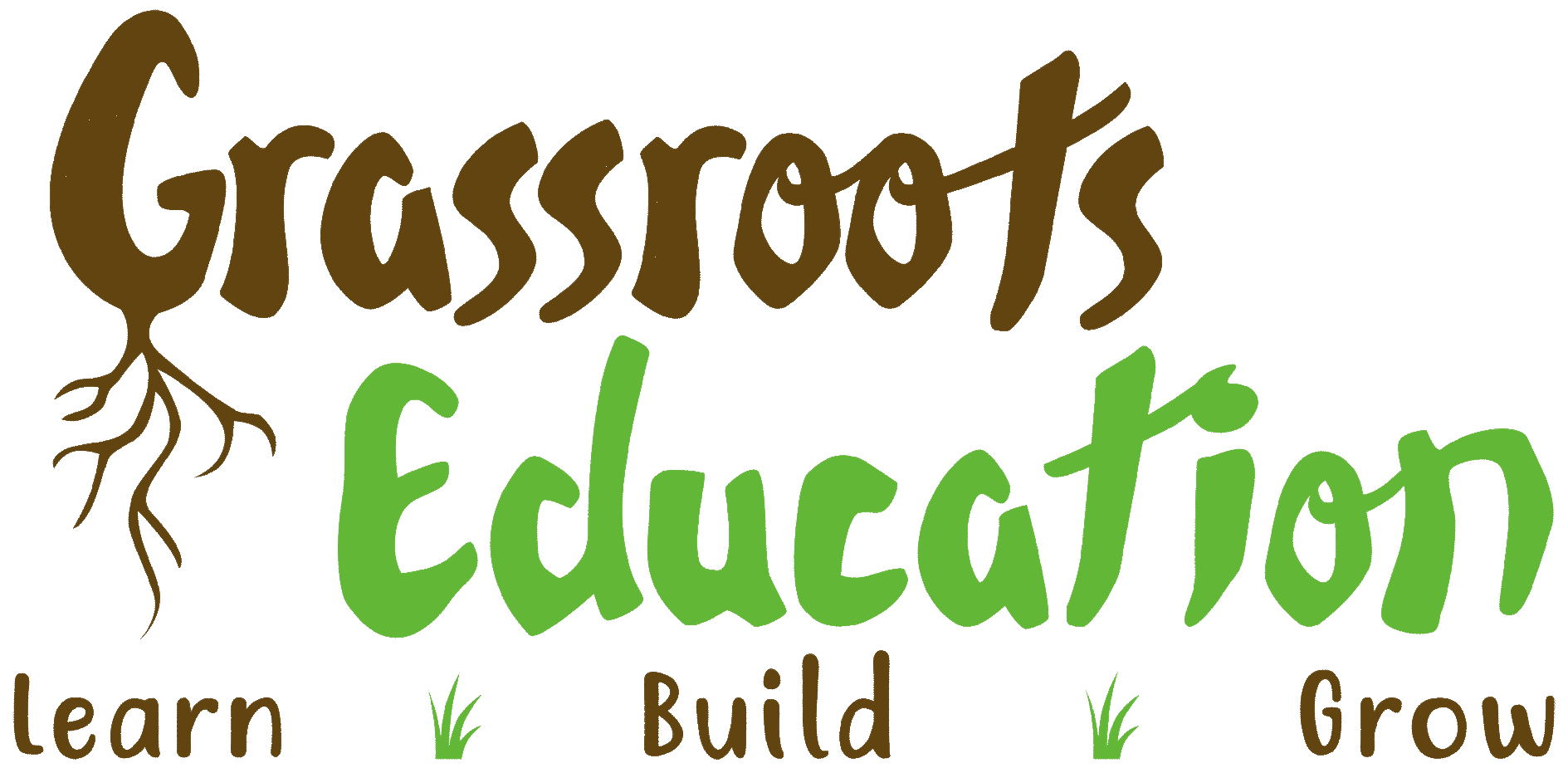


 How can I make sure I am prepared for a storm? Well, I do know that part of the preparation for a storm is making sure there is enough food supply, the house is in order – which means making sure that the roofs and buildings are ready to withstand the winds and rain. Preparation means that outdoor furniture is hunkered down so they can’t “fly” away. It also means making sure there is enough water stored just in case the water has to be turned off. There could also be loss of electrical supply, so I have to prepare by getting candles, lanterns, flashlights, lamps, or generators ready, in the event there is a loss of electrical power. Most of all, the weather authorities sometimes warn against going outside during the storm, during the eye of a hurricane, just in case there are flying debris or objects. If I am not prepared, I could be caught off guard and left without even essential items.
How can I make sure I am prepared for a storm? Well, I do know that part of the preparation for a storm is making sure there is enough food supply, the house is in order – which means making sure that the roofs and buildings are ready to withstand the winds and rain. Preparation means that outdoor furniture is hunkered down so they can’t “fly” away. It also means making sure there is enough water stored just in case the water has to be turned off. There could also be loss of electrical supply, so I have to prepare by getting candles, lanterns, flashlights, lamps, or generators ready, in the event there is a loss of electrical power. Most of all, the weather authorities sometimes warn against going outside during the storm, during the eye of a hurricane, just in case there are flying debris or objects. If I am not prepared, I could be caught off guard and left without even essential items.







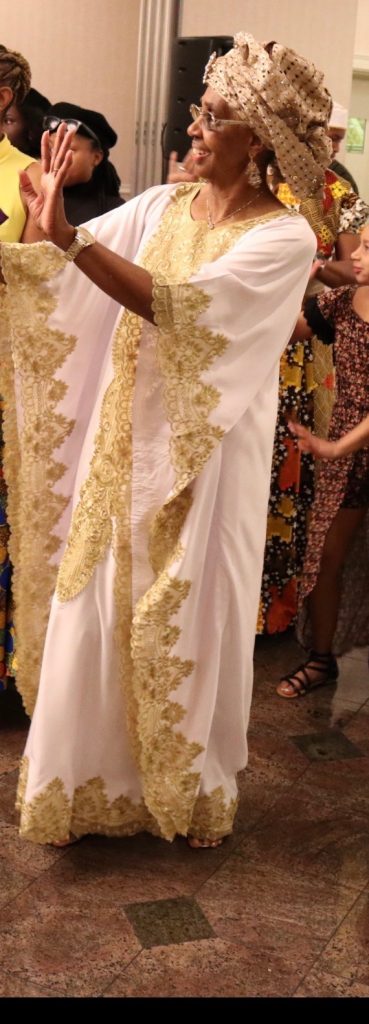
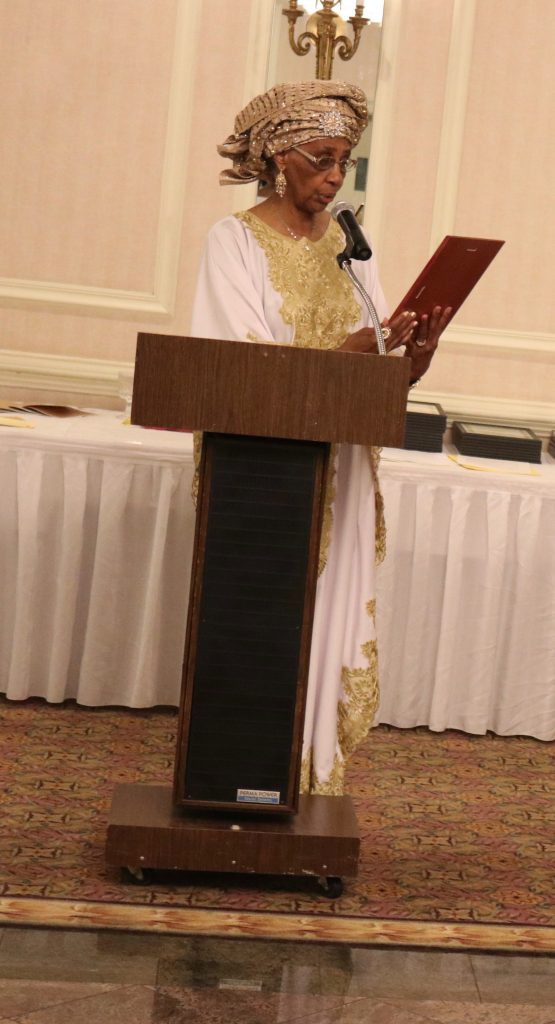
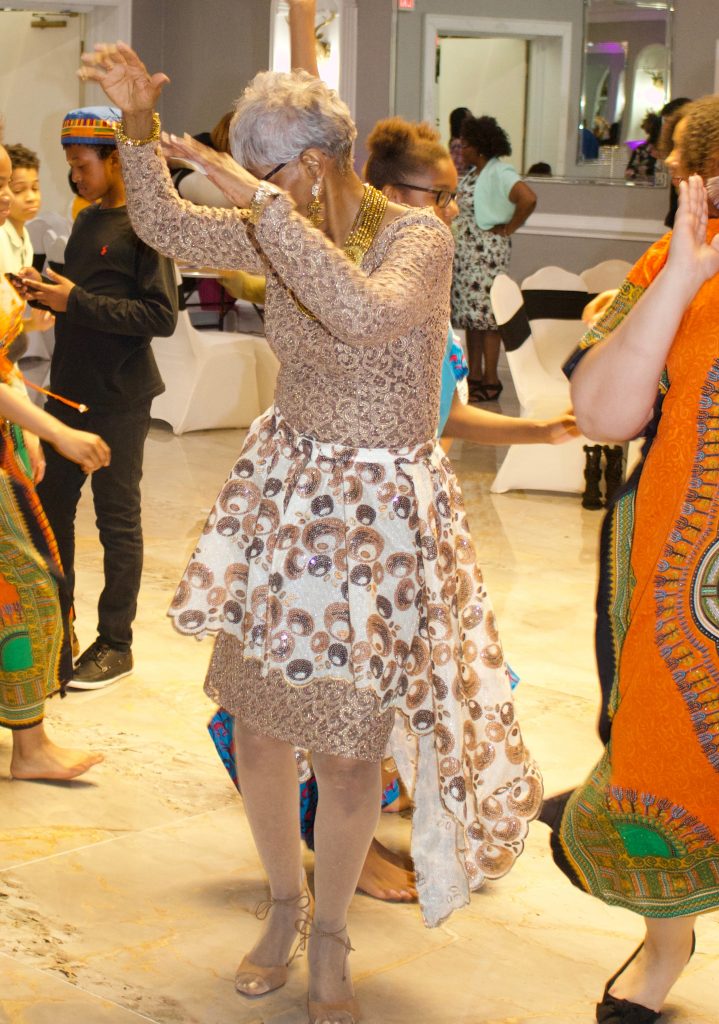




 The students learned how to interact with people other than their peer group and learned responsibility and civic duty. While their work on the doll project remained anonymous to the residents, it instilled in them the value of making a difference in someone’s life and emphasized the importance of volunteering. One of the students when asked what was his favorite part of the trip to the Nursing Home, his response was, a beautiful woman at the Home was asking him questions about what he was going to do in the future that he told her stories about her life. She had a big smile on her face. She was also very strong.”
The students learned how to interact with people other than their peer group and learned responsibility and civic duty. While their work on the doll project remained anonymous to the residents, it instilled in them the value of making a difference in someone’s life and emphasized the importance of volunteering. One of the students when asked what was his favorite part of the trip to the Nursing Home, his response was, a beautiful woman at the Home was asking him questions about what he was going to do in the future that he told her stories about her life. She had a big smile on her face. She was also very strong.”